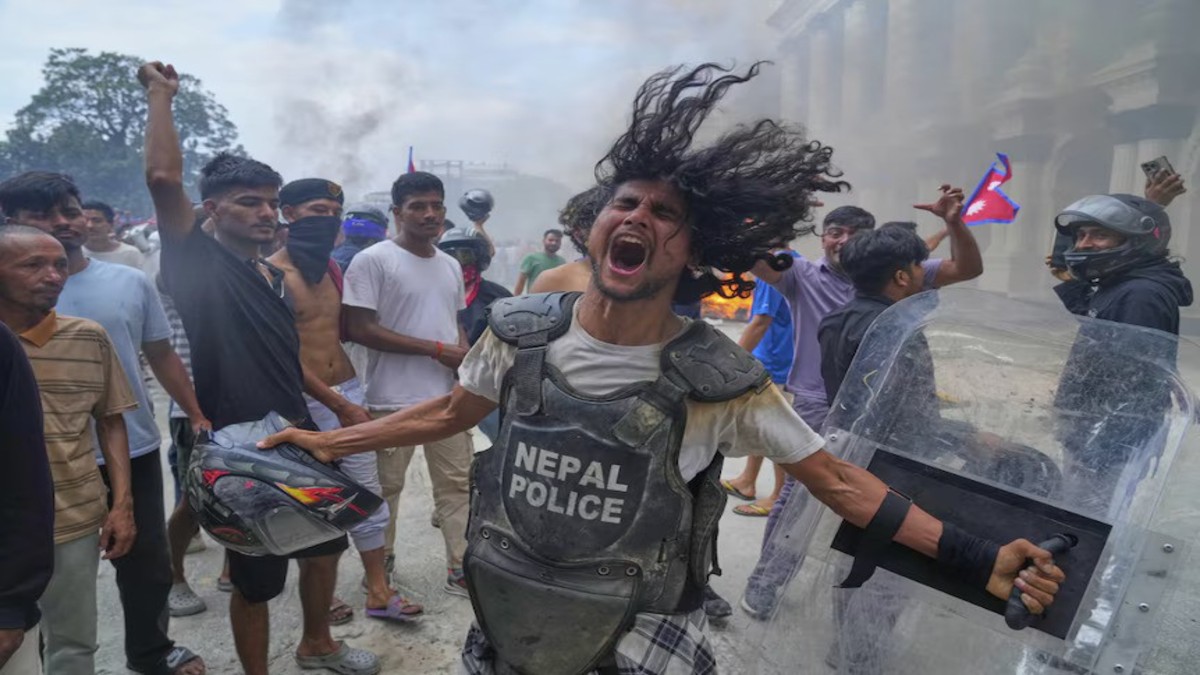It seems to be the season of regime-change in the Indian subcontinent. After Sri Lanka (2022) and Bangladesh (2024), now it is the turn of the pristine Himalayan country of Nepal to witness violent protests against the ruling dispensation. What started as a Gen-Z protest against the ban on foreign social media platforms enforced by the Nepali Supreme Court turned into a well-planned campaign, with a leading role played by an NGO called Hami Nepal. The organisation coordinated the protests under the umbrella name ‘Youth Against Corruption’. No matter how much some people are trying to justify the protests as organic, the markers of engineered protests are just too strong to miss. In fact, all the anti-government protests in the neighbourhood began with an order from the judiciary, but it was the government that bore the brunt.
Coming to the larger issue of regime change, in the last few years three of India’s close neighbours have witnessed debilitating revolutions that brought down the government of the day. Each time, a certain section of people in India openly wished for a similar revolution at home. However, their wishes have not come true, and the Modi government has continued in power uninterrupted since 2014.
Why these calls for similar protests in India are not gaining traction is anyone’s guess. Unlike Nepal, Sri Lanka, and Bangladesh, India is a much more mature democracy with deeply entrenched institutions that have proved their mettle over the last 78 years. If Nepal had a Maoist insurgency that prevented a political culture free from violence from taking root, Sri Lanka had an ethnic conflict, and Bangladesh had a tryst with military dictatorship as well as religious extremism. In comparison, India stands as a successful example, one that has not allowed these challenges to weaken its liberal and plural fabric, despite being a geographically vast country with linguistic, religious, and ethnic diversity.
Unlike Nepal and its neighbours, India has also proved to be an economic success story. Bangladesh’s economic growth was largely limited to a particular strata, whereas India’s economic dynamism is more egalitarian in character. The fact that almost everyone—irrespective of caste, culture, or religion—is a stakeholder in India’s $4 trillion economy is the biggest reason why no one wants to rock the boat merely at the provocation of a select group of anti-government activists. Every single fault line exploited to sow turmoil in India—including caste violence, linguistic divisions, and religious intolerance—has failed to generate any significant return on investment for anarchists.
Impact Shorts
More ShortsConceptually, there are two types of social disruptions that catapult a new regime to power—one organic and a product of internal factors, and the other choreographed from outside. Both require different means for the state to tackle. Fortunately, the Indian state—which has survived nearly eight decades, including destabilising regime-change operations engineered during the Cold War—is more than capable of handling such challenges. Unlike Nepal or even Bangladesh and Sri Lanka, India’s institutions are robust and resilient, with too many stakeholders invested in their continuity. This includes the election machinery, which has proved more effective than even that of the world’s most powerful democracy, the United States. The federal nature of India’s polity further strengthens democratic institutions. No matter how much the opposition blames Electronic Voting Machines or questions the neutrality of the Election Commission, the fact that they also win mandates in elections organised under the same framework blunts their criticism.
There is also the question of how much internal dissatisfaction with the status quo is real and how much of it is manufactured by those out of power for more than a decade. Since Congress, especially the Gandhis, have little previous experience of being out of power and view themselves as the country’s de facto first family, they have not behaved like an ideal or usual opposition. Instead of using legitimate means available within the framework of the Constitution, they have sought to unseat the Bharatiya Janata Party through street agitation, even though it costs the country precious resources and time. But even those attempts have fallen flat.
To be clear, there have been many protests in the last decade—including the farm protests and the anti-CAA protests—but none evolved into mass movements demanding the removal of the government of the day. For instance, the farm protests, partly orchestrated in Western capitals, partly funded by anti-India elements, and fully backed by opposition parties, never became a statement of dissent from pan-India farmers as originally envisaged. Beyond middlemen in the agriculture sector from Punjab masquerading as farmers blocking entry points to Delhi, the protests failed to attract the majority of genuine farmers from across the country.
Similarly, the anti-CAA protests were conceived and executed to enforce a mass movement against the government, with a deliberate and malicious misinterpretation of the Citizenship Amendment Act to incite minorities. Yet, even this could not expand beyond the Shaheen Bagh locality of Delhi, where residents often complained about the loss of livelihood it caused. One well-known hairstylist I know, who had opened a new salon there with considerable capital investment, confided privately how the barricades put up by parachuted activists harmed his community more than the so-called anti-minority policies of the government.
Since there is no organic basis for Nepal-style protests in India—with the Modi government maintaining a clean and clear governance record unlike corruption-ridden Nepal—one might think such protests would never happen in India. But that is not necessarily true. The rising graph of India under the Modi government, especially its independent foreign policy, has become an irritant to many players abroad. One cannot discount the possibility of engineered efforts to destabilise the country or the government.
In such a scenario, the only option available to the state is to take hard measures. Here, the intelligence setup, surveillance system, and law-and-order machinery have a big role to play. After all, this republic has undergone many struggles in the past decades to become a shining example of economic and political success today. The gains are too precious for Indians of every hue, and a handful of anarchists miffed at losing power must not be allowed to prevail.
The author is a New Delhi-based commentator on geopolitics and foreign policy. She holds a PhD from the Department of International Relations, South Asian University. She tweets @TrulyMonica. The views expressed in the above piece are personal and solely those of the author. They do not necessarily reflect Firstpost’s views.


)

)
)
)
)
)
)
)
)



